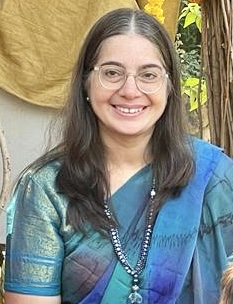Bio
During her Ph.D. research at the Sanders Brown Center on Aging, University of Kentucky, U.S.A., Dr. Radhika Vaishnav discovered novel biomarkers of aging and associated diseases. She was also awarded two consecutive NIH grants for her postdoctoral research work on neuro-therapeutics, following which she started up her own lab at the University of Louisville where she continued to study molecular and immune signatures of aging. She calls herself a scientist by training, educator by interest and artist at heart, who loves to explore new things - be it through reading, traveling or learning. Her passion is to write, teach and mentor: not only to inspire creativity and curiosity, but to instill an awareness of moral responsibility, empathy and compassion towards our planet and life on it. She dreams of a world without boundaries where knowledge is shared and bridges are built.
Subject Matter Expertise
This user is yet to add their areas of subject matter expertise.





